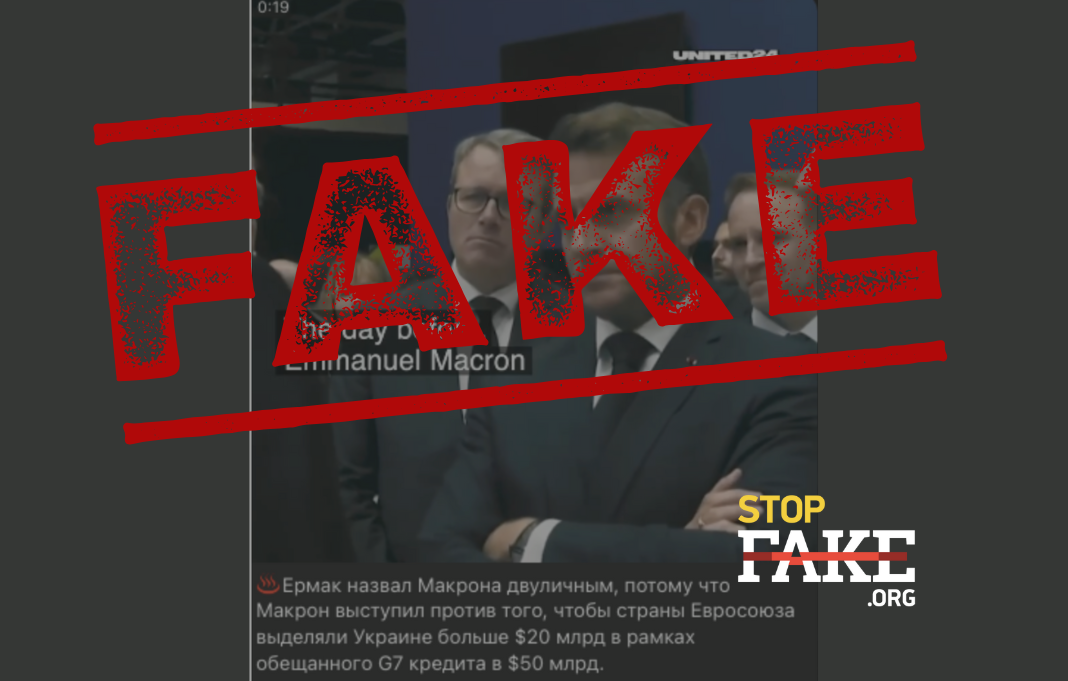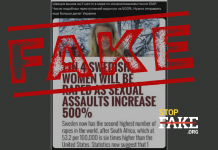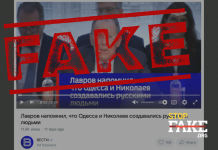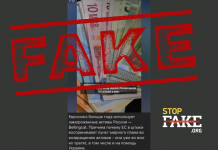Yermak never spoke this way about the French president. Moreover, Emmanuel Macron did not propose to reduce the amount of the loan to Ukraine from the G7 — this part of the news is also made up.
Pro-Russian sources are sharing a video, in which it is claimed that the head of the Ukrainian president’s office Andriy Yermak allegedly called Emmanuel Macron a «duplicitous politician» for his demand to reduce the loan to Ukraine from the G7 to 20 billion dollars — instead of the expected 50. «Back in April, Macron was ready to send his army to help us, and now he wants to reduce the amount of aid?» Andriy Yermak allegedly scoffed in the 1+1 interview.

However, this news is completely made up. Firstly, the video was fabricated by propagandists, as United24 did not actually publish such news either on their website or on social networks. It is also worth noting that this is a state platform launched to consolidate international support for Ukraine, so it is not clear why such a source would publish insults against the leaders of allied states. Secondly, the interview on the 1+1 channel, where Yermak allegedly made such a statement, does not exist at all — the last time the head of the President’s office gave an interview on this channel was three years ago, when he became a guest of the «VIP with Natalia Moseichuk» program. And thirdly, the statement that Emmanuel Macron is allegedly demanding a reduction in the amount of the loan to Ukraine is also untrue. In fact, the President of France, together with the US government, was one of the initiators of the program, according to which the G7 countries will give Ukraine a loan of 50 million dollars, using the profits from 325 billion dollars in assets of the Russian Central Bank frozen in Europe. The funds should arrive in Ukraine by the end of 2025. The motivation for approving this loan was Donald Trump’s statements that if he wins the presidential elections, he will stop providing funding to Ukraine — thus, the G7 program is designed to ensure a regular flow of aid to Ukraine regardless of the decisions of the next US president.
The loan project did encounter some bureaucratic constraints. The U.S. has expressed concern that because sanctions against Russia must be reapproved every six months, this could create irregularities in the receiving funds intended to finance the loan — and thus create gaps in the country’s budget. In addition, the pro-Russian president of Hungary, Viktor Orbán, said that even if EU countries vote to change the sanctions renewal period to 36 months, he is ready to veto this decision. However, despite hesitation from the US, the EU plans to stick to the agreements. Currently, the European Parliament has approved a €35 billion loan for Ukraine at the expense of the frozen assets of the Russian Federation, which must be paid to Ukraine by the end of 2025. If the US fails to deliver its share, the remaining 15 billion will be provided by other G7 partners.
Read the refutation of another fake on the topic of international relations in the article Fake: Zelensky Provokes a Nuclear Crisis — Scottish Media The National.





